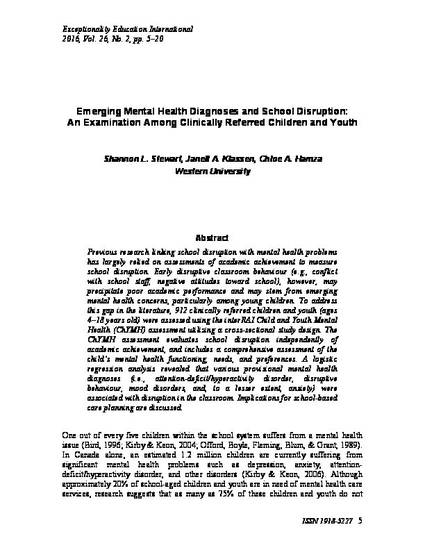
Previous research linking school disruption with mental health problems has largely relied on assessments of academic achievement to measure school disruption. Early disruptive classroom behaviour (e.g., conflict with school staff, negative attitudes toward school), however, may precipitate poor academic performance and may stem from emerging mental health concerns, particularly among young children. To address this gap in the literature, 912 clinically referred children and youth (ages 4–18 years old) were assessed using the interRAI Child and Youth Mental Health (ChYMH) assessment utilizing a cross-sectional study design. The ChYMH assessment evaluates school disruption independently of academic achievement, and includes a comprehensive assessment of the child’s mental health functioning, needs, and preferences. A logistic regression analysis revealed that various provisional mental health diagnoses (i.e., attention-deficit/hyperactivity disorder, disruptive behaviour, mood disorders, and, to a lesser extent, anxiety) were associated with disruption in the classroom. Implications for school-based care planning are discussed.
Available at: http://works.bepress.com/shannon-stewart/1/
